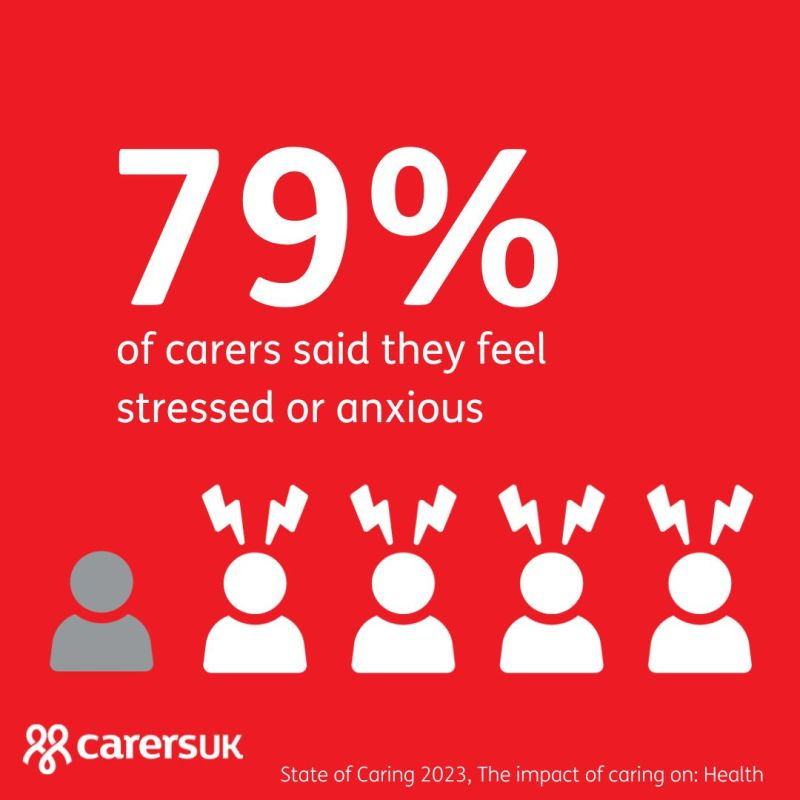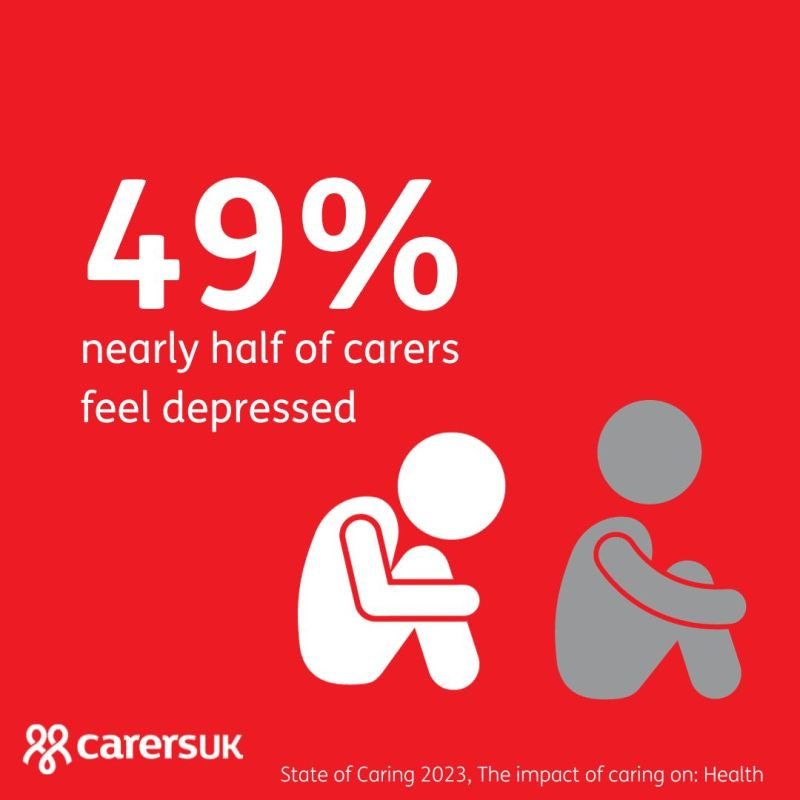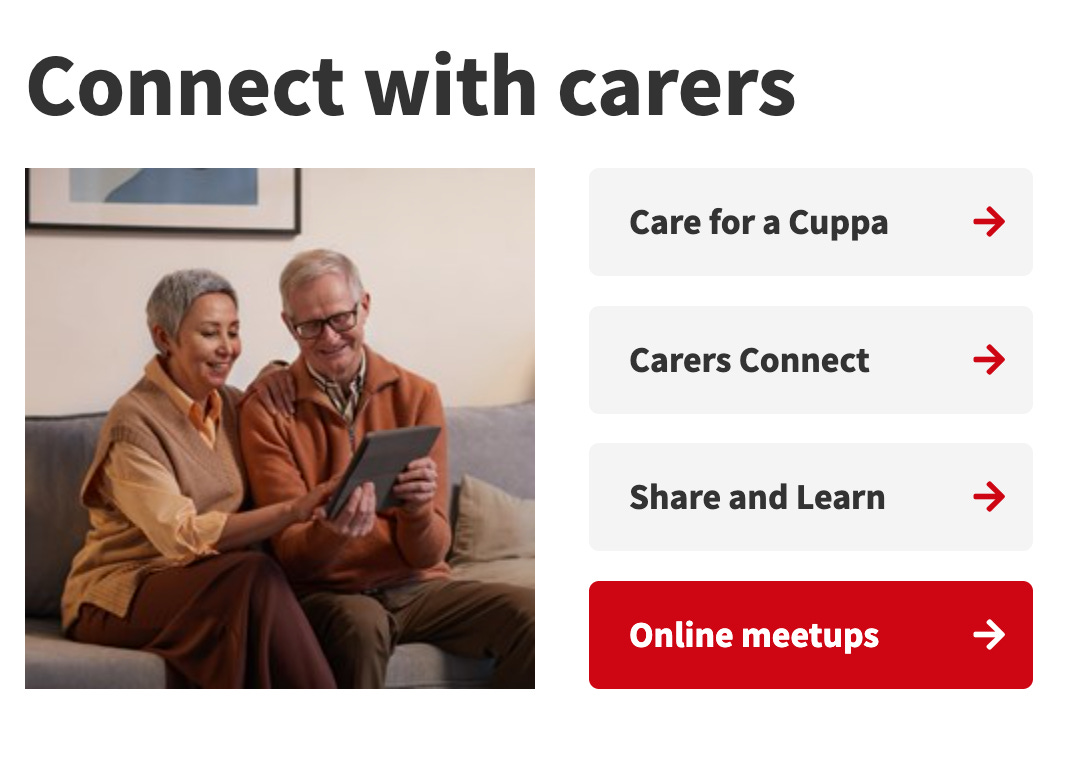Commentary: 'Carers UK State of Caring - Health Report 2023.'
Being a Caregiver impacts our health and wellbeing. Connecting, sharing and supporting other Carers helps you realise you're not alone.
Carers UK carried out an online survey between June and August 2023. This report summarises the responses from the 10,751 people who are currently providing care. A few statistics about the people who responded to the questionnaire.
3% were aged 0-34, 10% were aged 35-44, 22% were aged 45-54, 35% were aged 55-64, 20% were aged 65-74 and 11% were aged 75 and over
32% had been caring for over 15 years, 15% had been caring for 10-14 years, 24% had been caring for 5-9 years, 26% had been caring for 1-4 years and 3% for less than a year
47% cared for 90 hours a week or more, 15% cared for 50-89 hours, 24% cared for 20-49 hours and 15% cared for 19 hours or less
At what age did you start caring? Are you supporting a carer?
If this is a representative sample of Carers in the UK, it means that we should all rethink what retirement is all about! An aging population with increasing chronic health needs and an overworked NHS healthcare system means there is an increasing burden on each of us, to care for each other.
This new report builds on the State of Caring - the Impact of caring on Finances report.
Carers UK's new State of Caring Health research has found that carers are significantly more likely to suffer with poor mental health.
This may state the obvious for you. As a Carer, you’ll know that it’s not just about worries related to the thousands of tasks you need to do to keep on top of all the actual health caring (e.g. communications to doctors, nurses, specialists, appointment scheduling/checking/chasing/obtaining the results, AND fill the gap between incorrect hospital discharge letters which are usually late and your GP practice to check on new prescriptions, repeat tests, and repeat prescriptions).
There are also family communications, updates, visits, and helpful suggestions to navigate. In addition to, house administration and repairs (e.g. the boiler that glitches, the lightbulbs that need replacing, the wifi that drops, the telephone line which is now going digital, the heating to regulate). When there were maybe 2 of you sharing the tasks now it’s all on you, and only so many hours in the day.
All on top of the regular but increasing worries over financial planning, Lasting powers of attorney (LPA), and what happens if…Oh, and then we need to remember to make dinner, (it’s no wonder that the report says we have difficulties sustaining a balanced diet too) and that’s the shortlist!
Imagine what happens when there is a crisis event, in the middle of the night, or you’re told another test is needed. Whether we’re sitting waiting in ER triage for hours, or waiting weeks for results, ponderous waiting with only Google searches on hand to answer questions or research terms late at night, exacerbates our worries and elongates our to-do lists!
Who is doing the everyday caring?
50% of carers said they were receiving support with their caring roles from family and friends – a higher proportion than those receiving support from healthcare services (19%) and social care services (37%).
Employers for Carers LinkedIn post:
Unpaid carers are often unable to rely on fragmented social services to support their caring responsibilities, meaning that carer friendly employers have an increasingly influential role on their employees wellbeing.
Find the report here: https://lnkd.in/eRPXK8BF
Key learning & Recommendation: Connect with other Carers.
There are 2 organizations I highly recommend: Carers UK and mobilise.
Carers UK https://www.carersuk.org/
The online forum Carers Connect is a warm supportive community in which several Carers have been members for years. There is a lot of humour, every day general chat but also a wealth of experience. There is a continuous cycling of support, over time. There is something about being anonymous and venting to other carers which is freeing.
mobilise: https://www.mobiliseonline.co.uk/
We're Mobilise, the online service that harnesses the collective knowledge, wisdom and expertise of unpaid carers. We empower those that care to thrive.
Both organisations have online virtual meetings. Plus, like other Carer support organsiations and non-profits they support each other’s campaigns for our greater good. After all, we all want to increase the awareness of Carer’s needs, rights, and the challenges we face every day.
Connecting with both organisations is easy. See you over there!
If you’re not a carer, who do you know who is a Carer?
Can you support a carer by giving your time, an empathetic shoulder to lean on? Or maybe you could offer to help?
Are you comfortable fitting into someone else’s routine and schedule? Take it from me that every ‘caring’ minute is planned, every trip to a supermarket is like a SWAT team mission impossible assignment, in terms of what, when & how. So, please flex, adapt, and synchronize yourself with, how the people caring, need you. Try not to be the cause of additional stress and worries. Empathetic support is not about ticking a box or a transaction, nor is it predictable or easy to control.
Carers have to capitalise on the minutes we have, squeeze things in, and tick things off our lists when an opportunity appears because our time is not our own, it belongs to the person we monitor, care-for, and worry about.
Hopefully, now you know that if a Carer says, thanks for your offer but the time you’ve suggested just can’t work for us, you won’t be offended. We may look calm but we’re paddling furiously under the water!
Mindful listening and meaningful support are less common than you think! After all, we’re all just regular humans, not superheroes! So, please Care, be Aware, Prepare & Engage.









